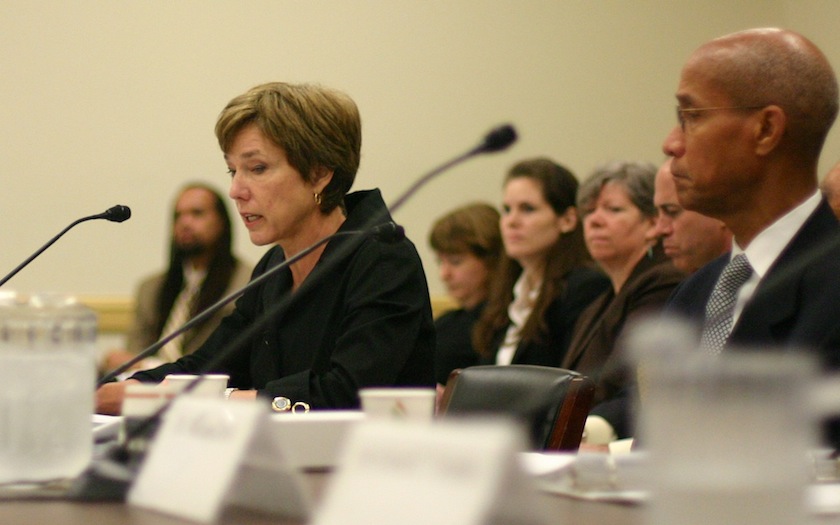WASHINGTON — The budget chief of the Environmental Protection Agency faced tough questioning from House lawmakers and some stinging criticism from other government officials on Wednesday over the agency’s management practices and spending.
“We must insure that EPA meets its core mission at lower cost,” said Rep. Cliff Stearns, Republican from Florida and chairman of the House Energy and Commerce subcommittee on Oversight and Investigations.

Environmental Protection Agency chief financial officer Barbara Bennett (left) and EPA Inspector General Arthur Elkins Jr. faced questioning Wednesday from the House oversight subcommittee on energy and the environment.
The agency must do a better job keeping track of its workload, workforce and facilities, government officials told the lawmakers.
“EPA leadership lacks reasonable assurance that it is using personnel in an effective and efficient manner to achieve mission results,” EPA Inspector General Arthur A. Elkins Jr. said. He added that the problem is ongoing: “Most of our recommendations remain unresolved.”
Elkins suggested the agency could save money by looking at its properties across the country, especially those offices with only a few staff.
The agency could find savings by closing some of its more than 70 laboratories if they were under-utilized, but the EPA doesn’t have detailed information on how efficiently they are being used, according to David Trimble, a director with the Government Accountability Office, a nonpartisan investigative agency of Congress.
“We found EPA did not have accurate and reliable information on laboratory use and efficiency,” Trimble told the subcommittee.
EPA Chief Financial Officer Barbara Bennett, who was testifying to defend the agency’s $9 billion budget request for 2012 in light of the special “supercommittee” cost-cutting effort, said the budget request includes funds to study laboratory efficiency.
Bennett said the recent threat of a government shutdown and the repeated practice of Congress passing short-term spending bills instead of an on-time annual budget has made it harder to operate efficiently.
Rep. Henry A. Waxman, Democrat from California, accused the Republicans of not just looking to tighten the EPA’s budget but trying to stall the implementation of a broad swath of environmental rules, including air standards for coal-fired power plants.
“If the Republicans get their way there would be no reason for the EPA because we would have no environmental laws,” Waxman charged. The administration is already proposing cuts to key programs, he said. “Some of these cuts are excessive.”
But Republicans were just trying to follow the president’s admonition to conduct a line-by-line review of the budget, said Rep. John Sullivan, Republican from Oklahoma.
“The simple fact is the federal government is broke,” Sullivan said.
But the top Democrat on the committee, Colorado Rep. Diana DeGette, said, “If you eliminated the EPA all together it wouldn’t even be a blip in our nation’s budget.”
